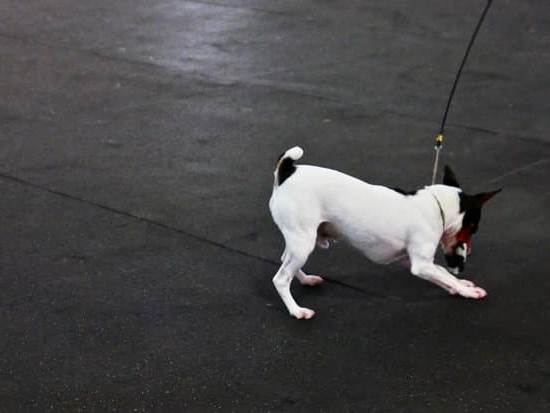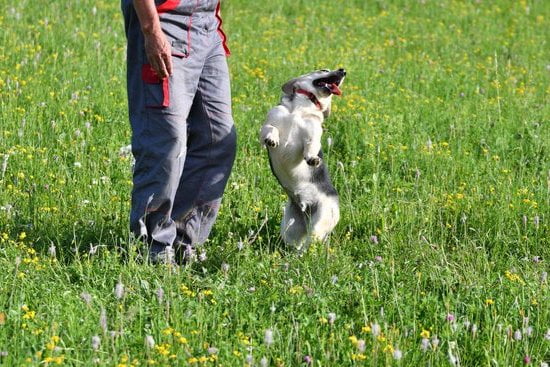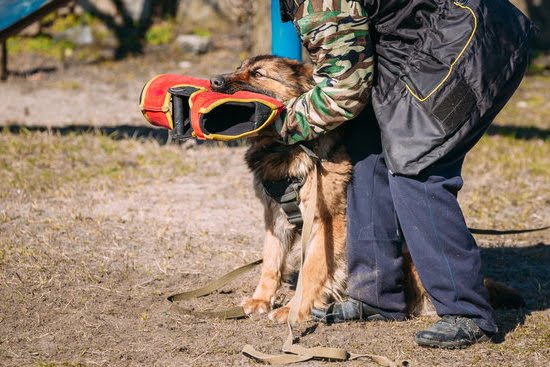Training a non treat motivated dog can be a challenging task for many pet owners. When traditional food-based rewards fail to motivate your furry friend, it’s important to explore alternative methods to effectively train them.
Understanding the reasons behind a dog’s lack of interest in treats is crucial in finding the right approach to training. In this section, we will delve into the underlying causes of non treat motivated behavior and how pet owners can navigate through this challenge.
One of the key factors in successfully training a non treat motivated dog is identifying alternative rewards and incentives that appeal to them. By finding your dog’s motivation, whether it’s through praise, toys, or other non-food rewards, you can encourage desired behaviors without relying on treats. This requires careful observation and experimentation to determine what truly motivates your dog and using that as a driving force in training.
In addition to finding alternative incentives, positive reinforcement training techniques play a vital role in effectively training non treat motivated dogs. Utilizing praise and interactive play as rewards can create a strong bond between you and your furry companion while promoting good behavior. Clear communication through consistent cues and commands is equally important in ensuring that your non treat motivated dog understands what is expected of them during training sessions.
Finding Your Dog’s Motivation
Non treat motivated dogs can pose a challenge when it comes to training, but there are effective strategies for identifying alternative rewards and incentives to encourage desired behaviors. Understanding the reasons behind a dog’s lack of interest in treats is crucial in finding other forms of motivation.
Some non treat motivated behavior may be due to underlying health issues, stress, anxiety, or simply a preference for other rewards. By recognizing these factors, you can better determine what motivates your dog and tailor your training approach accordingly.
When it comes to finding your dog’s motivation, it’s important to experiment with different types of rewards and incentives. For some non treat motivated dogs, praise and affection can be just as rewarding as food. Others may respond well to playtime with their favorite toy or access to their favorite activities such as going for a walk or playing fetch. By observing your dog’s behavior and experimenting with various rewards, you can identify what truly motivates them.
In addition to alternative rewards, incorporating positive reinforcement training techniques is essential when working with non treat motivated dogs. This includes using verbal cues such as “good boy” or “great job,” along with physical affection such as pats and belly rubs. It’s also important to establish clear communication by using consistent commands and cues. This helps non-treat motivated dogs understand what is expected of them and reinforces their good behavior.
| Reward Type | Description |
|---|---|
| Playtime | Engaging in play activities such as tug-of-war, fetch, or hide-and-seek |
| Physical Affection | Giving pats, belly rubs, or cuddling as a form of reward |
| Access to Activities | Allowing the dog to engage in its favorite activities such as going for walks or playing at the park |
Positive Reinforcement Training Techniques
Training a non treat motivated dog can present its own set of challenges, but it’s not impossible. Positive reinforcement is key to training any dog, and for non treat motivated dogs, it’s important to explore alternative rewards and incentives. Utilizing praise, toys, and other non-food rewards can be effective in encouraging desired behaviors in these dogs.
Finding Non-Food Rewards
For non treat motivated dogs, finding alternative rewards is essential. This could include using their favorite toy as a reward for good behavior or giving them extra playtime as a form of positive reinforcement. Every dog has their own individual preferences, so it’s important to observe what motivates your dog and use those as rewards during training.
Consistency With Praise
Non treat motivated dogs may respond better to verbal praise or physical affection as opposed to food treats. When they exhibit the desired behavior, make sure to praise them enthusiastically with a happy tone of voice and gentle petting. Consistent positive reinforcement through praise will help reinforce the behavior you want to see from them.
Using Playtime as a Reward
Since some dogs are more motivated by play than food, incorporating playtime into training sessions can be highly effective. Whether it’s playing fetch, tug-of-war, or engaging in any other favorite game with your dog, using playtime as a reward for good behavior can be an excellent way to train non treat motivated dogs.
When understanding how to train a non treat motivated dog, it’s essential to be creative in finding what truly motivates your pet. Incorporating alternative methods of positive reinforcement such as praise and play into your training routines can prove successful in encouraging desirable behaviors from your furry friend.
Establishing Clear Communication
One effective way to establish clear communication with a non treat motivated dog is to use positive reinforcement training techniques. This involves using praise, toys, and other non-food rewards to encourage desired behaviors. By consistently rewarding your dog for following commands or displaying the desired behavior, they will begin to understand what is expected of them without the use of treats.
Another important aspect of clear communication is consistency in your training methods. Using the same commands and cues in every training session will help your dog learn and understand what is expected of them. This consistency will also help to prevent confusion and frustration for both you and your dog.
While training a non treat motivated dog may present its challenges, with patience and persistence, it is possible to effectively communicate with your pet and achieve successful results. Understanding the importance of clear commands and consistent cues can make a significant difference in overcoming obstacles during the training process.
| Training Method | Effectiveness |
|---|---|
| Positive reinforcement | Highly effective for non treat motivated dogs |
| Consistent cues | Crucial for clear communication with non treat motivated dogs |
Patience and Persistence
Training a non treat motivated dog can be a challenging task, but with patience and persistence, it is possible to achieve great results. Here are some tips for how to train a non treat motivated dog:
1. Be patient: Non treat motivated dogs may take longer to warm up to training methods, so it’s important to be patient and understanding. Avoid getting frustrated and instead, focus on building a strong bond with your dog.
2. Use non-food rewards: Since treats may not be effective for your dog, try using alternative rewards such as toys, playtime, or verbal praise. Every dog has something that motivates them, so experiment with different rewards to find what works best for your pup.
3. Consistency is key: When training a non treat motivated dog, consistency in your commands and cues is essential. Make sure everyone involved in the training process uses the same language and gestures to avoid confusion for your dog.
Remember that every dog is unique and may require different approaches when it comes to training. With patience and persistence, you can help your non treat motivated dog learn new behaviors and skills. If you’re struggling to make progress on your own, don’t hesitate to seek help from a professional trainer or behaviorist who specializes in working with non treat motivated dogs.
Adapting Training Methods
When it comes to training a non treat motivated dog, traditional methods that rely on food rewards may not always be effective. In this section, we will explore different training methods and techniques that can be used to effectively train a dog who is not motivated by treats.
Using Play and Toys as Rewards
For non treat motivated dogs, play and toys can be highly effective as alternative rewards. By using their favorite toy as a reward for good behavior, you can motivate your dog to follow commands without relying on food treats. Playing games such as fetch or tug-of-war can also serve as positive reinforcement for desirable behaviors.
Clicker Training
Clicker training is a popular method that can be particularly effective for non treat motivated dogs. The sound of the clicker serves as a marker for the desired behavior, and the dog learns to associate the click with a reward. This method allows you to pinpoint the exact moment when your dog exhibits the desired behavior, making it easier for them to understand what you are asking of them.
Utilizing Life Rewards
Life rewards such as going for a walk, getting attention from their owner, or being allowed on the couch can also serve as powerful motivators for non treat motivated dogs. These rewards are naturally occurring aspects of your dog’s life, and by using them strategically in training, you can encourage your dog to display positive behaviors without relying on food treats.
By exploring and incorporating these alternative training methods and techniques, you can effectively train a non treat motivated dog while still providing ample positive reinforcement for their good behavior. It’s important to remember that each dog is unique, so finding the right combination of rewards and incentives may require some trial and error. With patience and persistence, however, it is possible to successfully train a non treat motivated dog using these alternative methods.
Overcoming Challenges
Training a non-treat motivated dog can present unique challenges, but with the right approach and mindset, these obstacles can be overcome. Here are some common challenges faced when training non treat motivated dogs and how to overcome them:
1. Lack of interest in traditional rewards: Non treat motivated dogs may not respond to the typical food-based rewards used in training. In this case, it’s important to identify alternative rewards that are meaningful to your dog. This could include toys, playtime, or even verbal praise.
2. Frustration and impatience: It can be frustrating when traditional training methods don’t work as expected with a non-treat motivated dog. However, it’s crucial to remain patient and persistent. Understand that the process may take longer than usual, but consistency will eventually yield results.
3. Finding the right motivation: Each dog is unique, so it may take some trial and error to find what truly motivates your non-treat motivated dog. Keep experimenting with different types of rewards until you find what resonates with your furry friend.
Adapting Training Methods:
Seeking Professional Help:
– If you’re struggling to make progress with your non treat-motivated dog, don’t hesitate to seek help from a professional trainer or behaviorist who has experience working with dogs that lack interest in food rewards.
Seeking Professional Help
In conclusion, training a non treat motivated dog can be a challenging but not impossible task. Understanding the reasons behind their lack of interest in treats is essential for finding alternative rewards and incentives that can motivate them. It’s important to remember that with patience and persistence, positive reinforcement techniques such as praise, toys, and other non-food rewards can be effective in encouraging desired behaviors.
Establishing clear communication through consistent cues and commands is crucial when training a non treat motivated dog. Adapting training methods and exploring different techniques may also be necessary to find what works best for your individual dog. Additionally, it’s important to address common challenges and obstacles in training non treat motivated dogs, and seek professional help from a trainer or behaviorist when needed.
Knowing when it’s time to seek help from a professional is not an admission of failure, but rather a proactive step towards ensuring your dog receives the most effective training possible. Professional trainers or behaviorists have the expertise and experience to work with various types of dogs, including those who are not food motivated.
They can provide tailored guidance on how to train a non treat motivated dog and offer valuable insights to help you overcome any obstacles you may encounter in the process. With the right support system in place, both you and your non treat motivated dog can achieve success in their training journey.
Frequently Asked Questions
How Do You Train a Dog That Is Not Motivated by Treats?
Training a dog that is not motivated by treats can be challenging, but it’s not impossible. One approach is to use other types of rewards such as toys, praise, or affection. Finding out what your dog values and using that as a reward can help motivate them during training.
What Is the Best Way to Train a Dog Without Treats?
The best way to train a dog without treats is to find out what else motivates them. Some dogs may respond well to playtime, verbal praise, or even a special activity like going for a walk. By identifying what your dog finds rewarding, you can use that as positive reinforcement during training sessions.
How Do You Train an Uninterested Dog?
When faced with an uninterested dog, it’s important to first assess if there are any underlying health issues or environmental factors that may be causing their lack of interest. Once those are ruled out, try to make the training sessions more engaging and fun for the dog.
Incorporating activities they enjoy and keeping training sessions short and varied can help keep an uninterested dog engaged and motivated.

Welcome to the blog! I am a professional dog trainer and have been working with dogs for many years. In this blog, I will be discussing various topics related to dog training, including tips, tricks, and advice. I hope you find this information helpful and informative. Thanks for reading!





